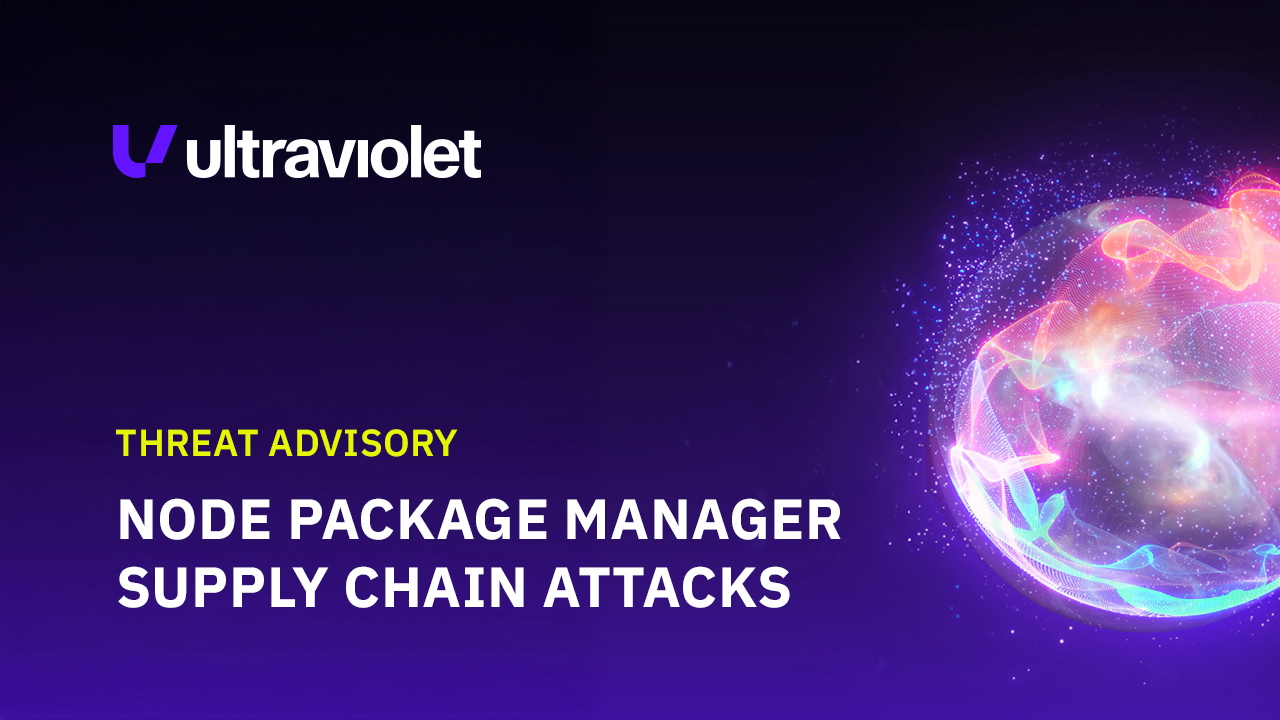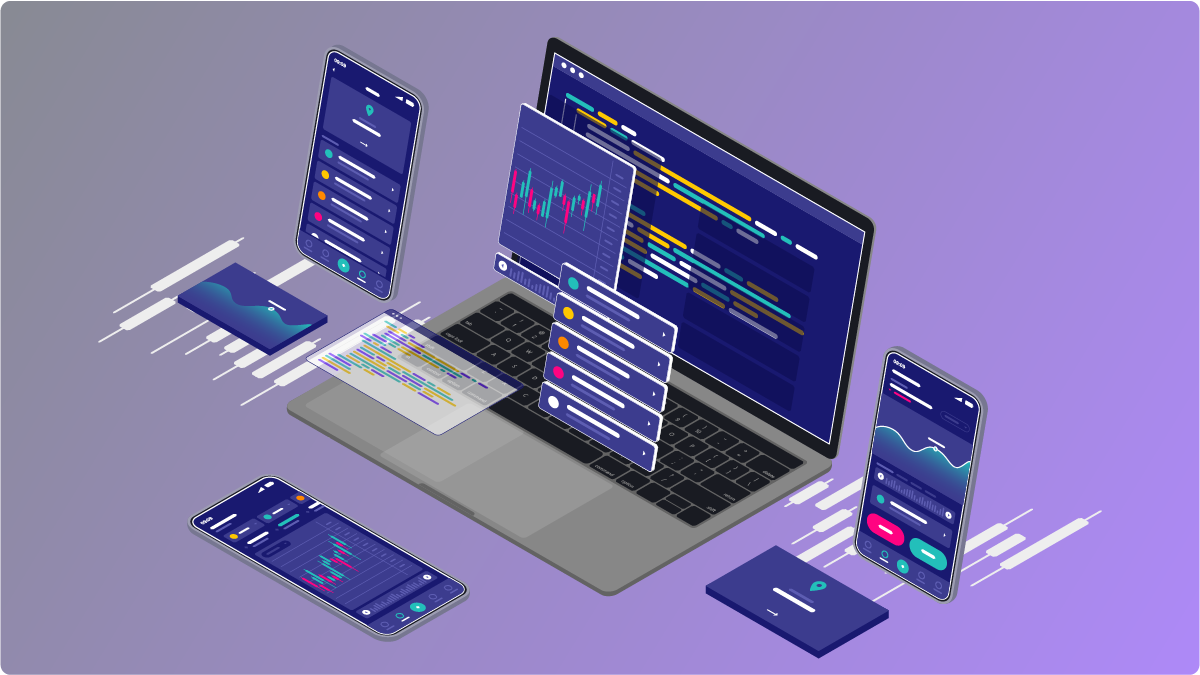
Threat Advisory: NPM Supply Chain Attacks
NPM supply chain attacks in 2025 show how compromised packages can spread malware to billions of downloads. Learn what TIDE recommends to reduce developer and enterprise risk.
Find flaws in AI Systems
Find flaws in web, mobile, and IoT applications.
Expose risks in AWS, Azure, and GCP environments.
Ongoing testing to catch real-world vulnerabilities as they appear.
Live-fire exercises to sharpen detection and response.
Time-boxed security assessments across networks, apps, and infrastructure.
Simulated attacks to test detection and incident response.
Named security experts integrated seamlessly into your team.
Real-time detection and automated threat response.
24x7 monitoring and response by expert analysts.
Nonstop scanning to prioritize and reduce risk.
Ongoing scanning, triage, and compliance tracking.
Unified security platform powering all UV services.
Cross-platform toolkit for advanced red team ops.

Secure your code, infrastructure, and deployment pipelines before attackers exploit them.
Feb 3-5, 2026
Mar 19, 2026
Feb 19, 2026
UltraViolet Cyber is a practitioner-led MSSP delivering offensive and defensive security to Global 2000 and Federal clients. Built by former intelligence operators, we unify application security, red teaming, detection, and engineering under one roof. Our UV Lens platform replaces silos with integrated, outcome-driven operations.
This blog was written by AI and edited by a human
In the rapidly evolving domain of cybersecurity, Artificial Intelligence (AI) has become a beacon of hope, promising to revolutionize how we protect our digital assets. As cyber threats become more sophisticated, the question arises: what is the true value of AI in the current cybersecurity landscape?
Our Chief Security Officer, Bryce Kunz, offers insightful perspectives on this subject. AI’s prowess, he suggests, lies not in replacing human expertise but in augmenting it. AI serves as a force multiplier, enhancing the effectiveness and efficiency of cybersecurity teams.
Real-time red teaming, an exercise where security teams actively attempt to breach their own systems to detect vulnerabilities, is a critical component of cybersecurity. The prospect of AI conducting such operations in real-time tantalizes the imagination. However, Bryce clarifies that while AI significantly automates mundane tasks, the technology is not yet at a point where it can autonomously execute complex red teaming initiatives without human oversight.
The potential of AI-generated zero days—previously unknown vulnerabilities—is another area of intense speculation. While AI can assist in vulnerability identification, the complete cycle of discovering a zero day, creating an exploit, and deploying it remains beyond AI’s current capabilities. This underlines the indispensable role of human intervention in the nuanced art of cybersecurity.
A more provocative notion is the potential for AI to initiate an attack-defense paradox. As AI becomes more adept at defense, it could simultaneously advance offensive capabilities, leading to an escalating arms race between cybersecurity professionals and adversaries. Bryce's insight into this posits a future where AI’s role in this dynamic will necessitate careful ethical consideration and strategic deployment.
So, what can AI do for cybersecurity today? It enables teams to achieve more in less time. Routine tasks that once consumed hours can now be automated, allowing cybersecurity professionals to focus on more complex challenges. Junior-level practitioners, equipped with AI tools, can perform analyses at a mid or senior level, elevating the overall proficiency of the cybersecurity workforce.
Moreover, for seasoned experts, AI acts as a powerful ally, sifting through data at an unprecedented pace to surface actionable insights. This collaboration between AI and human expertise means that critical decisions are made faster and with a higher degree of precision.
Despite these advances, we must recognize that AI has not reached the zenith of Artificial General Intelligence (AGI)—a state where machines exhibit human-like cognitive abilities. Therefore, the vision of an entirely autonomous AI-driven cybersecurity paradigm is still on the horizon.
Bryce's advice encapsulates the present state of affairs succinctly: "Let AI do a lot of the legwork, and let the experts focus on what they’re good at." Red teamers and cybersecurity experts still need to be at the helm, steering the course of cyber defense mechanisms. AI is a tool, albeit a powerful one, that requires the strategic guidance of human intelligence.
In conclusion, the true value of AI in today’s cybersecurity is its capacity to amplify human talent. It is a transformative tool that, when wielded by knowledgeable professionals, can create an impenetrable shield around our digital ecosystems. As we continue to explore the depths of AI's capabilities, one thing remains clear: the synergy between human and artificial intelligence is the cornerstone of the next era in cybersecurity.
We’re here to help. Get in touch for an initial conversation with one of our security experts and learn more about how UltraViolet Cyber can help you take cyber readiness and resilience to new levels.